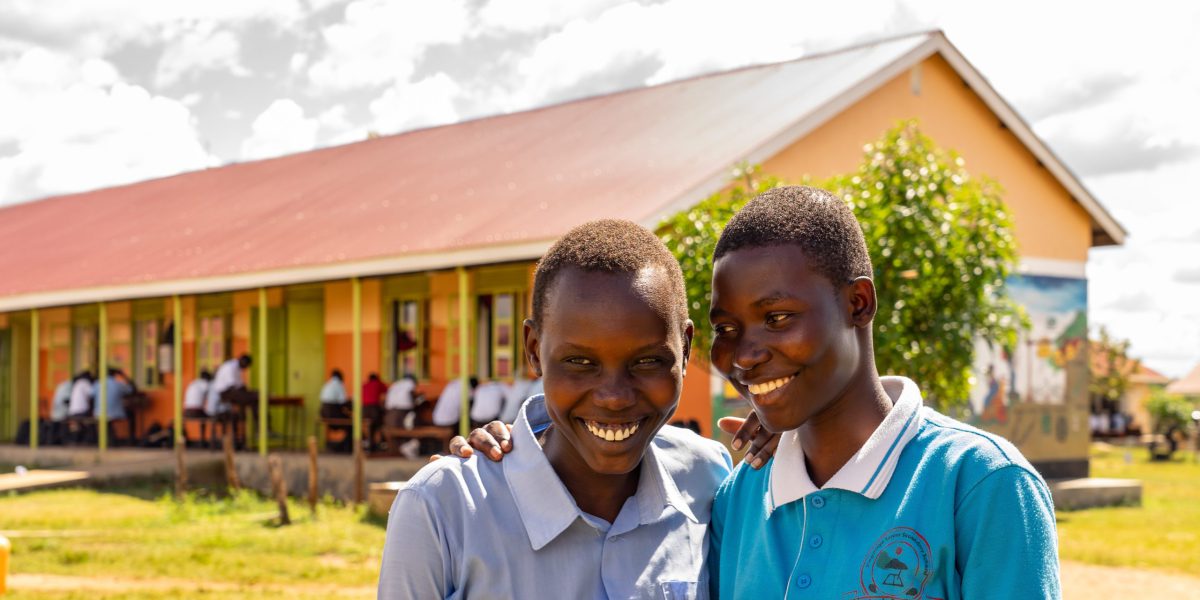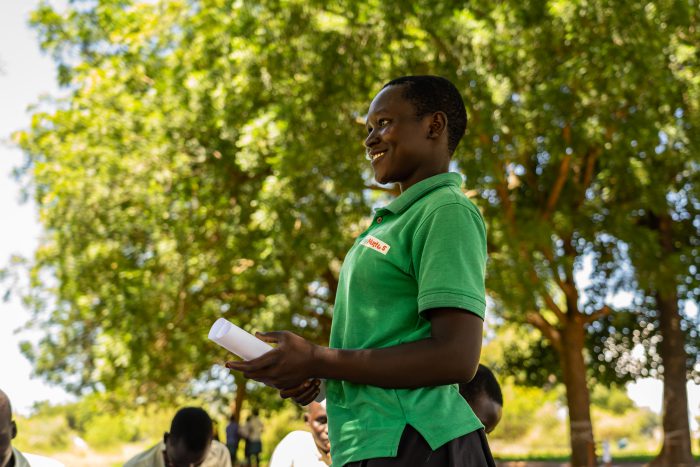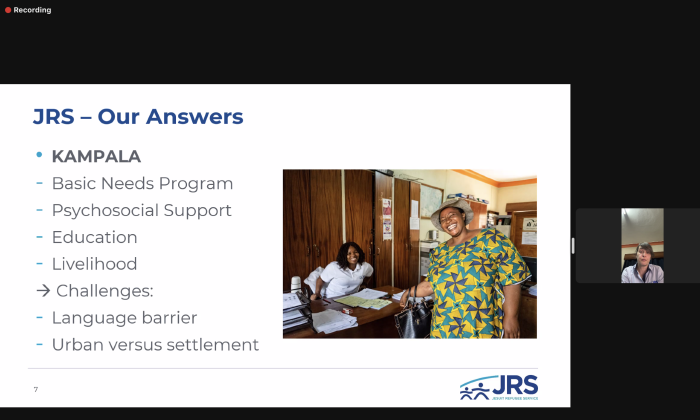International Women’s Day Event: Accelerating Gender Equality through Empowering Women and Girls
12 March 2024|Chloe Gunther

On Friday, March 8th, a dedicated group of generous supporters gathered to gain insights from Christina Zetlmeisl, the Country Director of JRS Uganda, who brings seven years of experience accompanying refugees as she and her team implement gender-responsive programs. Christina shed a light on impactful initiatives serving refugee women and girls in the towns of Kampala and Adjumani, painting a picture of both challenges and successes in Uganda.
JRS Uganda operates from two key locations: an urban office in Kampala and an accompaniment program in the Adjumani refugee settlement. Christina often travels between the two locations, passing the Murchison Falls National Park, lakes, the White Nile River, and the Gorilla Mountains throughout the approximately 300 miles between the bustling city of Kampala and the northern Adjumani settlement. “The country is so beautiful and green,” she said.
Uganda, hosting the largest number of refugees in Africa, is currently receiving the most people from South Sudan, Congo, Somalia, Eritrea, Burundi, and Rwanda. Christina highlighted the unique challenges faced by South Sudanese families, emphasizing the traditional gender roles imposed on young women.

In these communities, daughters are expected to fulfill domestic duties, including staying at home, cooking, fetching water, and caring for siblings. Christina quoted a poignant statement from one young woman she met: “We are born to bring cows, not to study.”
Forced marriages and pregnancies are formidable obstacles hindering girls’ education. Christina described how frequently, when girls leave school for holiday break and visit their families, they do not return the following semester because they have been married.
Adding to the complexities, Uganda enforces a law stipulating that a pregnant young woman can only attend school for the first three months of her pregnancy, and she must then wait an additional six months after childbirth to resume her education. This hiatus takes a significant toll on the educational journey of these young women.
Traditional gender norms and societal stigma surrounding women’s health also create barriers to girls’ education, Christina said. When young women cannot afford menstrual items, they are forced to stay home, isolating themselves in their rooms.
“Addressing this issue, JRS actively works to provide all girls with menstrual hygiene products, ensuring they do not miss crucial class time each month,” Christina said. JRS also established child protection centers that support girls as they continue their education.
In 2023, 58% of JRS Kampala’s direct services benefited women and girls, covering mental health and psychosocial support, education, livelihoods programs, and basic needs programs. In Adjumani, Christina noted that over 50% of the refugee community are school-aged children and 53% of the total population are female. Both groups face specific challenges and vulnerabilities related to exploitation and abuse.

Since 2020, JRS has implemented a successful gender-responsive education program in Adjumani, addressing key concerns through initiatives such as Boys and Girls Clubs in schools, Mother Groups, teacher training in gender-responsive education, menstrual hygiene management, and infrastructure improvements like latrines, additional spaces for girls, and enhanced dormitories. These programs are funded by the JRS/USA Greatest Needs Fund and the United States Bureau of Population, Refugees, and Migration.
“It has been an honor for me to be behind the scenes with the team that makes these programs possible,” said Joan Rosenhauer, JRS/USA President. “Those who advocate, donate, and raise awareness about refugee women and girls – everyone at this event is essential to this team.”
You can join us and ensure that, by next International Women’s Day, even more women and girls have equal opportunity to go to school, participate in society, and are equipped with the tools they need to harness a bright and hope-filled future. Support and empower refugee women and girls today.



